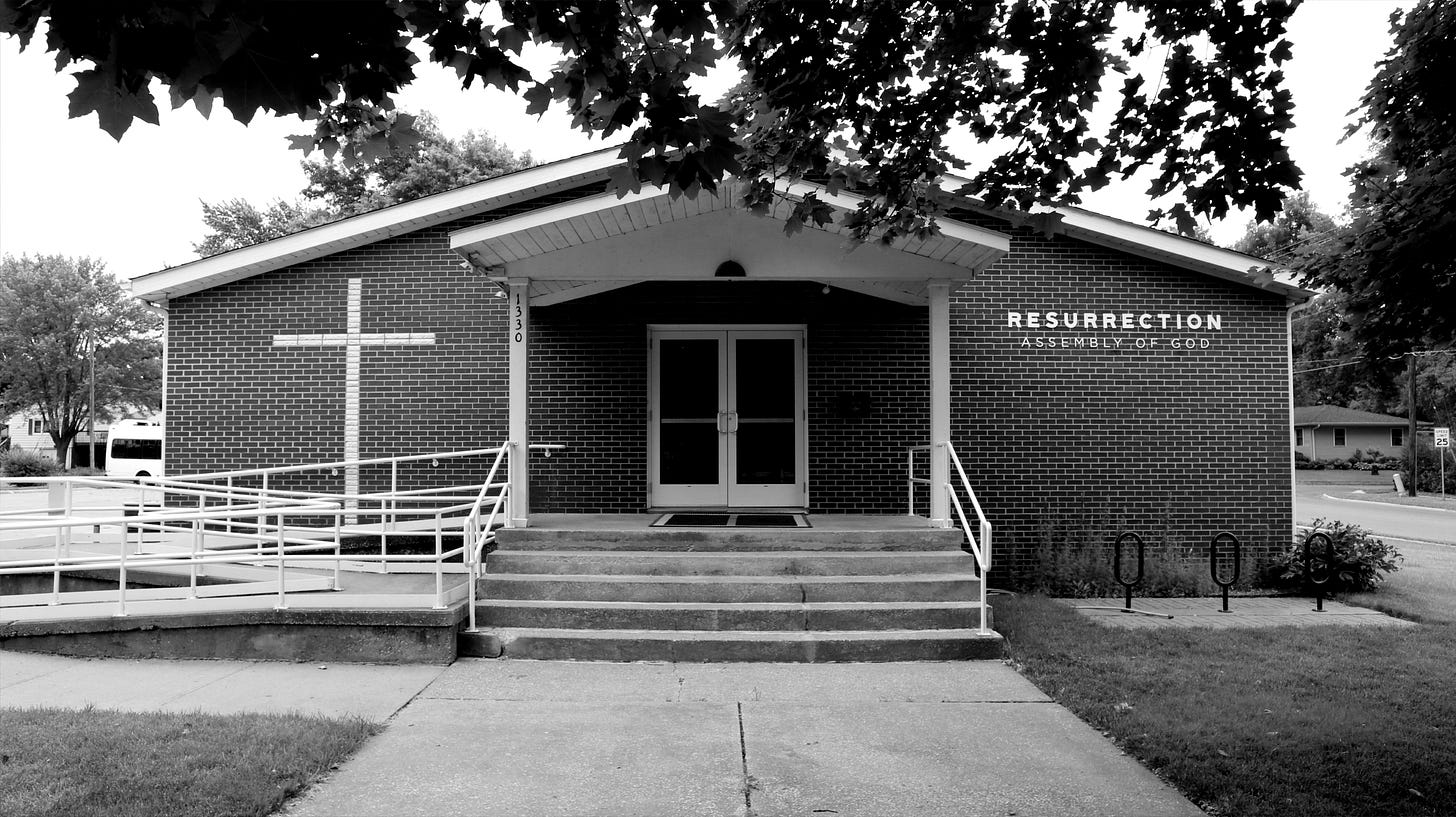Five or so years ago a retired reformed pastor knocked on the door of Resurrection Assembly. He told me he felt the Spirit had directed him to stop. He’d been praying for the church as often as he drove past it, and finally felt like it was time to confess. We set up a time to meet for coffee, and we’ve kept drinking coffee regularly ever since.
Stan has been an absolute gift. He’s never once lorded it over me that he has decades of pastoral experience and spiritual disciplines on me. Quite the opposite—he routinely insists that I pray for him at the end of our coffee dates. He might not know it but I’ve always paid attention to everything he’s said and done, because I’ve seen—and so anticipate—that there’s layers of wisdom in his most casual utterances.
One of the layers that I’ve picked up on is that Stan himself didn’t make it all up as he went along through his life and pastorate. The well I sneak sips of water from when I hang out with him is a well that runs deeper than him and has existed long before he was born.
I contrast this with my experience of the elder pastors in my own movement whose wells aren’t—and can’t be—quite as deep. I’m not criticizing them. The reality is that the Assemblies of God is a young, conversionist movement. With it being only about 125 years old, few pastors are second or third-generation church leaders. Most retirement-age pastors I’ve met didn’t grow up in the movement. If they grew up in church at all, they had a distaste for it until the Spirit led them to knock on the door of an Assemblies of God congregation.
That has led to a movement of pastors and church leaders who’ve had to make it up as they went along. Again, if they grew up in a church, it was a liberal protestant or Catholic tradition that had failed them. So drawing on the wells of those traditions would at best feel like raiding Egypt as the Israelites did before embarking on the exodus. Turning around to look would be tantamount to looking back on Sodom and so to become a pillar of salt. It’s a dramatic way of putting it, but it’s how many actually feel.
The Assemblies of God is a renewal movement and part of the on-going Pentecostal takeover of world Christianity. This has all sorts of benefits to it. But we also need to admit its limitations. We simply don’t have the generations-long roots of spiritual maturity.
My earliest memories of spiritual discipline—prayer, Bible reading, and cultivating the fruit of the Spirit accordingly—are from when I was 7 years old. I’d sit on the screened-in porch in Dédougou, Burkina Faso, with my mother at 6am, just when the sun had come up. She’d have our dog, Annie, on her lap, and eyeballing us from the corner was my pet chameleon (brilliantly named “Chamellia”). We’d sit in the silence of the morning with our Bibles open and pray together. (It was only as silent as it could be with the roosters crowing and the infant goats braying for their morning milk in the distance). I could hear my father praying in tongues in his office, which was just a converted concrete storage closet with a metal door, a few feet away.
I’m 38 years old now. That means that for 31 years I’ve had daily spiritual discipline. I began ministering in the church when I was about the same age—going to pagan villages for outreaches with my father, and aiding my mother’s kids and youth ministry by being her personal puppeteer and clown. There simply has not been a single season in my life where I haven’t been involved in some ministry in the local church. There are innumerable pastors who are twice my age in the Assemblies of God that don’t have that many years of daily spiritual maturation and ministerial experience.
Again, I’m not criticizing pastors who are twice my age with less time on the spiritual clock. Nor is time everything. But it is something. The simple reality is that it’s been difficult to find elders in my own movement who have a spiritual authority I can submit to. Yet, submission to an elder Christian faith and walk is precisely what I’ve craved.
That lack of spiritual authority on an individual level is reflected corporately. The Assemblies of God finds its roots in the 1906 Azusa Street Revival. Virtually every historian agrees that it was an astounding, marvelous, church-changing, and world-changing event. But I’m also not the first to say that my movement has regrettably functioned as if church history began with Azusa Street even if we’ve formally said otherwise. There’s a deep well of church life, spirituality, and wisdom that Pentecostals are invited to drink from. We’re robbing ourselves and shortchanging the next generation when we don’t.
Those who know me know that I am not reticent to criticize Christian traditions that have gone lifeless with age. There’s generations of wisdom in the historic church, but those churches have often long lost the baptism of fire that fell on the day of Pentecost. Yet it’s also worth saying the inverse: you can’t keep a fire going with green wood.
The good news is that none of us—Pentecostal or otherwise—need to choose between the depths of Christian maturity that stretch back millennia and the Holy Spirit. We can have both.
I want both. Don’t you?
Leave me a 💭.
Or hit that ❤️ icon to let me know this resonates.
I’ve started another imprint called Slow Burn Christianity, a Substack about reviving your Christian walk one step at a time.









I think one of the challenges of Pentecostal movements is that the life of the church is based around the Sunday morning meeting as opposed to the spiritual formation of members. This lends itself to spending time in prayer for the purpose of having power to minister in the corporate meeting. There is less focus on individual spiritual formation because, frankly, they're just isn't a value for it nor a way of it being expressed in our churches.
Heavy and timely and superb. We have a lot in common. Praying alongside you for our movement.